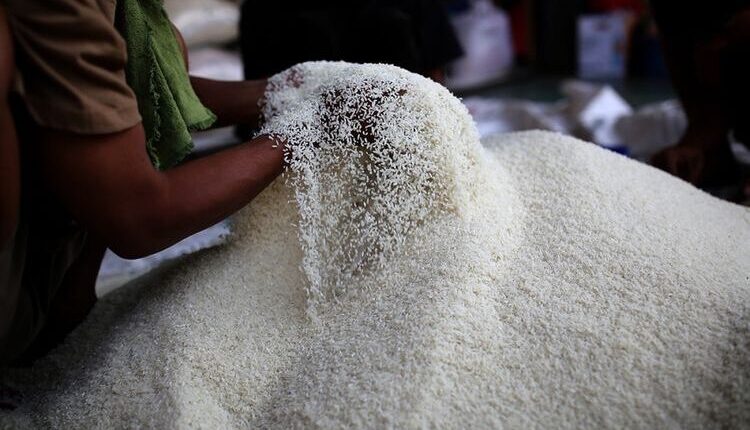Supporting the Government’s Strategy to Stabilize Rice Prices Through Market Operations
The government is holding market operations in all regions in Indonesia, with the aim of stabilizing rice prices . After market operations were held, the price gradually fell. The government is trying hard to ensure that rice prices remain stable and people can get it.
Recently, the price of rice experienced an adjustment and people were shocked. However, they actually don’t need to worry because rice prices will continue to stabilize. The government will not remain silent because rice is a staple food (nine basic commodities ) in Indonesia.
President Jokowi stated that he gave instructions to carry out market operations, the aim of which was to stabilize rice prices. Currently, the government’s rice reserves are 1.6 million tons and will still increase. He targets the government’s rice reserves to reach 3 million tons.
In other words, the government does not remain silent when there are changes in rice prices. However, immediate action was taken to increase the stock of rice reserves so that the stock would always be sufficient for all Indonesian people.
Then, market operations are also the government’s main strategy in stabilizing rice prices. President Jokowi while visiting the Bulog Warehouse in Karawang, West Java on September 14 2023 instructed Perum Bulog to hold market operations (OP), both at the retail and wholesaler levels so that the price of rice at the consumer level would fall.
In market operations, rice is sold for only Rp. 11,000 to IDR 12,000 per kilogram , and this nominal value is below the market price. When there is a market operation, the public is greeted enthusiastically because they can buy rice at a fairly affordable price.
Meanwhile , the Minister of Trade (Mendag)Zulkifli Hasan explained that market operations were carried out to maintain Stabilization of Supply and Market Prices (SPHP), especially rice commodities. According to him, market operations are important to ensure the price of Bulog rice is IDR 11,000/kg.
Trade Minister Zulkifli added that he had come to Makassar, Papua , Lampung, Jambi and Solo. The aim is to check the price of rice and the availability of rice stock. In this case, the central government through the Ministry of Trade is collaborating with the Regent, Governor, Bulog and Bapanas to stabilize rice prices,
In an effort to reduce the increase in rice prices, the government has assigned Perum Bulog to distribute SPHP rice at a selling price according to the Highest Retail Price (HET) at the consumer level. Including collaborating with the Regional Government to provide food at affordable prices.
Apart from that, the government is also speeding up the distribution of 10 kg of Rice Food Assistance to 21.3 million Beneficiary Families (KPM) which was originally scheduled to take place from October to September.
The Governor, Bulog and Bapanas will hand over 10 kg of Rice Food Assistance from President Joko Widodo to KPM. Rice Food Aid will be distributed during September, October and November. If the APBN is loose, hopefully in January, February and March food aid will be distributed again.
This time the government is providing 500 packages of 5 kg SPHP Bulog rice at a selling price below the HET. Apart from that, there are 50 basic food packages from the Governor of Jambi for low-income people.
Minister of Trade Zulkifli Hasan said that the public does not need to worry about rice stocks. This is because the rice supply in Bulog is 1.6 million tons and there will be an additional 400 thousand tons.
To stabilize rice prices, the government has several ways. Apart from market operations, the method is to open the tap for rice imports. The government itself has assigned Perum Bulog to import 2 million tonnes of rice by the end of 2023.
The Main Director of Bulog, Budi Waseso, stated that the realization of rice imports controlled by Bulog was 1.6 million tons, and the remaining 400 thousand tons were still in transit and some had already entered regions or areas throughout Indonesia.
Budi Waseso continued, now rice is not piled up in one place. In the past, there was a lot of rice in Java, for example in Jakarta and East Java. But now they don’t, they send them directly to the regions, even in Papua they send them directly from Thailand to Papua. Bulog targets that all 2 million tonnes of imported rice will enter Indonesia by the end of November or early December 2023 at the latest.
In that sense, the government is really working hard to stabilize the price of rice because it is a basic need for society. Apart from market operations, rice distribution must also be considered. In this way, rice will be evenly distributed throughout Indonesia and the price will remain stable.
The government is fully committed to stabilizing rice prices. The main way is by holding market operations, which are carried out in cities or districts throughout Indonesia. Then there is an increase in rice supplies and equal distribution. As a result, the price of rice can be reduced so that even small people can buy it. With market operations, rice prices will remain stable.
